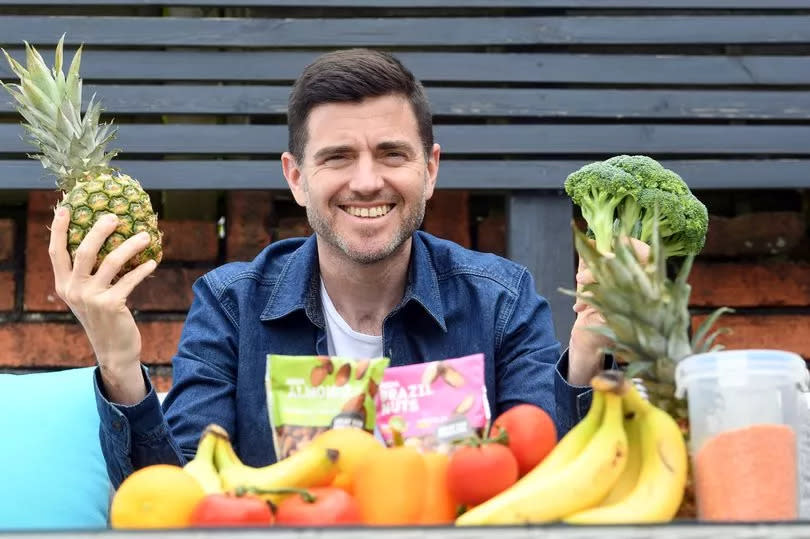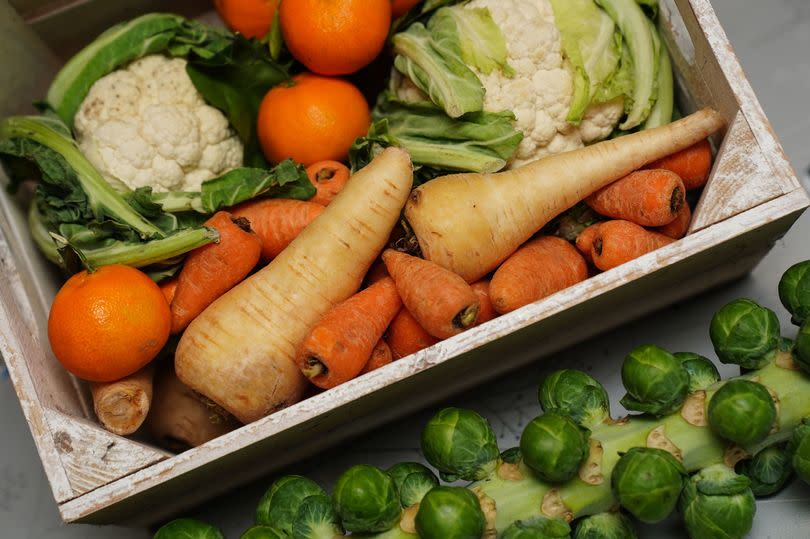'I've eaten no sugar or ultra-processed food this year - here are my three essential foods'

I've eaten no sugar or ultra-processed food this year, and changing my diet to pay close attention to my sugar and UPF intake has been much easier than I thought, writes Steffan Rhys.
When I decided to cut out refined sugar and ultra-processed food at the start of 2024, I honestly didn’t think I’d last that long. Like lots of people who start the new year feeling sluggish and unhealthy, I thought I’d probably get through January easily, then struggle to go without chocolate or find time to make a breakfast without granola, or a quick lunch without bread and crisps.
But six months on, and not only am I managing to stick with it, I’m finding it easy, rewarding and I’m struggling to see how I’d go back to old eating habits. It was initially a bit daunting to think about how I’d remove such “staple” foods from my diet while still being able to eat simple and cheap meals. But it turned out to be simple. In a nutshell, here's what I did:
No chocolate (or, in fact, any biscuit, dessert or refined sugar)
No ultra-processed foods or ingredients (supermarket bread and granola were the ones I ate most)
Less red and processed meat
More legumes (chickpeas, lentils, beans)
More nuts
More olive oil
Eating the rainbow (more on this below)
What are ultra-processed foods and which ones do we most commonly eat?
The way we buy food, our busy lives and our squeezed budgets all heavily influence the nature of the food on sale and the food we eat. So do the profit margins of the multi-national corporations that make it.
Read more: Lidl and Aldi come out on top in sunscreen tests with products offering best skin protection
Supermarket shelves are absolutely packed with ultra-processed foods, so much so that it can feel hard to avoid. But it's actually not that hard at all — and it definitely doesn't involve eating nothing but fresh fruit and vegetables. Some of the most common ultra-processed foods (or UPFs) are:
Supermarket packaged bread
Breakfast cereals and granola
Flavoured yoghurt
Chocolate, biscuits and crisps
Energy and granola bars
Fizzy drinks
Microwave ready meals
Dr Chris Van Tulleken, an infectious diseases doctor at University College London, BBC science presenter and New York Times bestselling author, gave this simple one-sentence definition on ultra-processed food: "If it's wrapped in plastic and it contains at least one ingredient that you don't typically find in a domestic kitchen, then it's ultra-processed food."

What changes did I make and what three foods can I not now live without?
I don't think I was leading an unusually unhealthy lifestyle before this year. I do a couple of circuits classes a week, run and cycle when I can and already ate a decent amount of fruit and vegetables, while almost always cooking from scratch and never really eating ready meals.
But UPFs would get into my diet in other ways. As well as my daily bowl of granola, I'd sometimes grab a supermarket pizza for a quick dinner when pressed for time, or make a sandwich with supermarket bread for lunch, which I’d have with crisps on the side.
So I started to think about how I could still keep my meals tasty while stripping out the unhealthy bits. The three single biggest things I'm doing are:
Cooking more legumes either as a main or side part of a meal
Eating nuts with Greek yoghurt and fruit for breakfast instead of granola
Using more olive oil (though the soaring price is killing me)
Eating more vegetables
And the three things I really couldn’t go without now are the legumes, the nuts and the Greek yoghurt.
My typical breakfast, lunch and dinner
Breakfast: nuts (usually cashews, almonds or walnuts) with Greek yoghurt and fruit
Lunch: I work mostly in an office in Cardiff city centre so I usually get a salad from the market and go heavy on lentils, veg and hummus. If at home, I might have homemade guacamole or homemade hummus made from chickpeas or butter beans (recipe below), an omelette with onions and peppers, or a baked potato.
Dinner: Fish or chicken with legumes or brown rice, or a bean chilli.
Some of my favourite new recipes
Chicken fajita rice bowl: this has chicken, peppers, red onions, baby corn, lime and black beans. You can make enough to last more than one family meal. You could also add avocado/guacamole on the side. See the recipe here.
Vegan chilli: This is made with lots of different kinds of beans. See the recipe here. You can also stir through some roasted sweet potato to bulk it out more and get more meals from it.
Fish with cannellini beans and courgettes: I make a much-simplified version of this recipe, which doesn't include the wine, chicken stock, garlic, parmesan or bay leaves. Basically, it's courgette, lemon, onion and the beans, then fry or roast some fish and stick it on top or on the side. Add fresh mint to the beans at the end to make it even nicer.
Chickpea or butter bean hummus: Hummus is so easy. Just chuck a few ingredients in a blender. Example recipe here. I find swapping butter beans in for chickpeas makes it softer.
Homemade pesto: As with hummus above, throw some ingredients in a blender and you're done in seconds. Recipe here.
Spaghetti bolognese: This is just a tip on a simple change you can make if you really just fancy something traditional and comforting. Just use less minced beef and use lentils or mushrooms instead to bulk it out.
What are my main tips going forward?
Here are my main tips:
Cut out pre-made sauces and make them from scratch instead (you can make mayo with four ingredients, and the same goes for pesto and hummus, which are delicious and go great with carrots, celery or fresh sourdough bread)
Beans are tastier than anyone has ever given them credit for — stock up on tins and cook them with herbs (black beans and fresh coriander and lime are a great side dish)
Nuts are great: they're filling, healthy and taste delicious raw but even nicer cooked (fry them dry in a pan until they're golden brown and add them to chopped chicken or a fried/sautéed veg dish)
Eggs go with most things and can be made into so many different meals
Eat the rainbow: this just means mixing and matching plant foods with different colours. Food variety is important and different colours mean different compounds and good chemicals which help your health
You don't need to make meat the centrepiece of a meal. I have not given up meat, in my house I wouldn't be allowed to anyway, but there has been a gradual shift away from big meaty centrepieces towards a greater variety of filling and satisfying vegetables dishes
Fat is fine: nuts, avocado, olive oil, yoghurt are all full of healthy fats. It's the unhealthy fats and sugar in UPFs and meat that you need to try to limit
If you can’t imagine life without bread, think about ditching the mass-produced white supermarket bread and grab some freshly-made sourdough bread from a local bakery. It will likely have far fewer chemicals in it - but it will cost a hell of a lot more, upwards of £3-4 a loaf. I buy a loaf every two or three weeks as a weekend treat and have it with olive oil instead of butter (not that you should be scared of a bit of butter)
You don't have to completely cut out anything at all — even moderate improvements will have corresponding benefits.
The overarching, simple message from the science and nutrition experts who contribute to Zoe is to focus on eating more whole foods and plants, while eating fewer foods which contain a lot of ingredients you've never heard of and would never have in your kitchen. A recent study cited by Zoe found that switching from an unhealthy to a healthy diet at the age of 40 can add a decade to your life.
You can also delve a lot deeper to understand the impact of polyphenols and the gut microbiome on your health. For me, that gradual switch in diet sounds like a sensible place to start.

 Yahoo News
Yahoo News 
